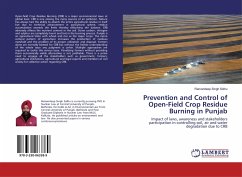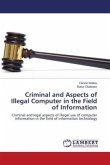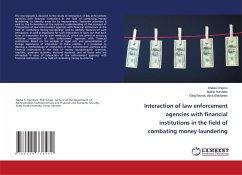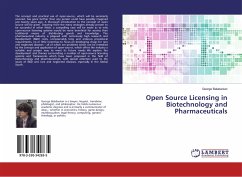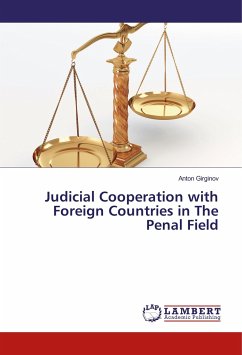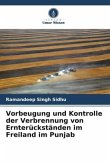Open-field Crop Residue Burning (CRB) is a major environmental issue at global level. CRB is one among the many sources of air pollution. Nature has always had the ability to absorb the entire agricultural residue in itself but due to technical advancement in agricultural sphere, residue accumulation exceeds the limits thereby disturbing the balance. CRB adversely affects the nutrient content in the soil. Straw carbon, nitrogen and sulphur are completely burnt and lost in the burning process. Punjab is an agricultural State with wheat and rice as the major crops. The mono cultural pattern of agriculture increases the production of residues manifold and the problem of its proper utilization and disposal. Farmers alone are normally blamed for CRB but without the holistic understanding of the whole issue any judgment is unfair. Multiple approaches are required to tackle this serious issue. Penalizing farmers without providing them economically viable alternatives is not justifiable.There is a prime need to engage all the stakeholders such as government, farmers, agricultural institutions, agricultural and legal experts and members of civil society for collective action regarding CRB.
Bitte wählen Sie Ihr Anliegen aus.
Rechnungen
Retourenschein anfordern
Bestellstatus
Storno

